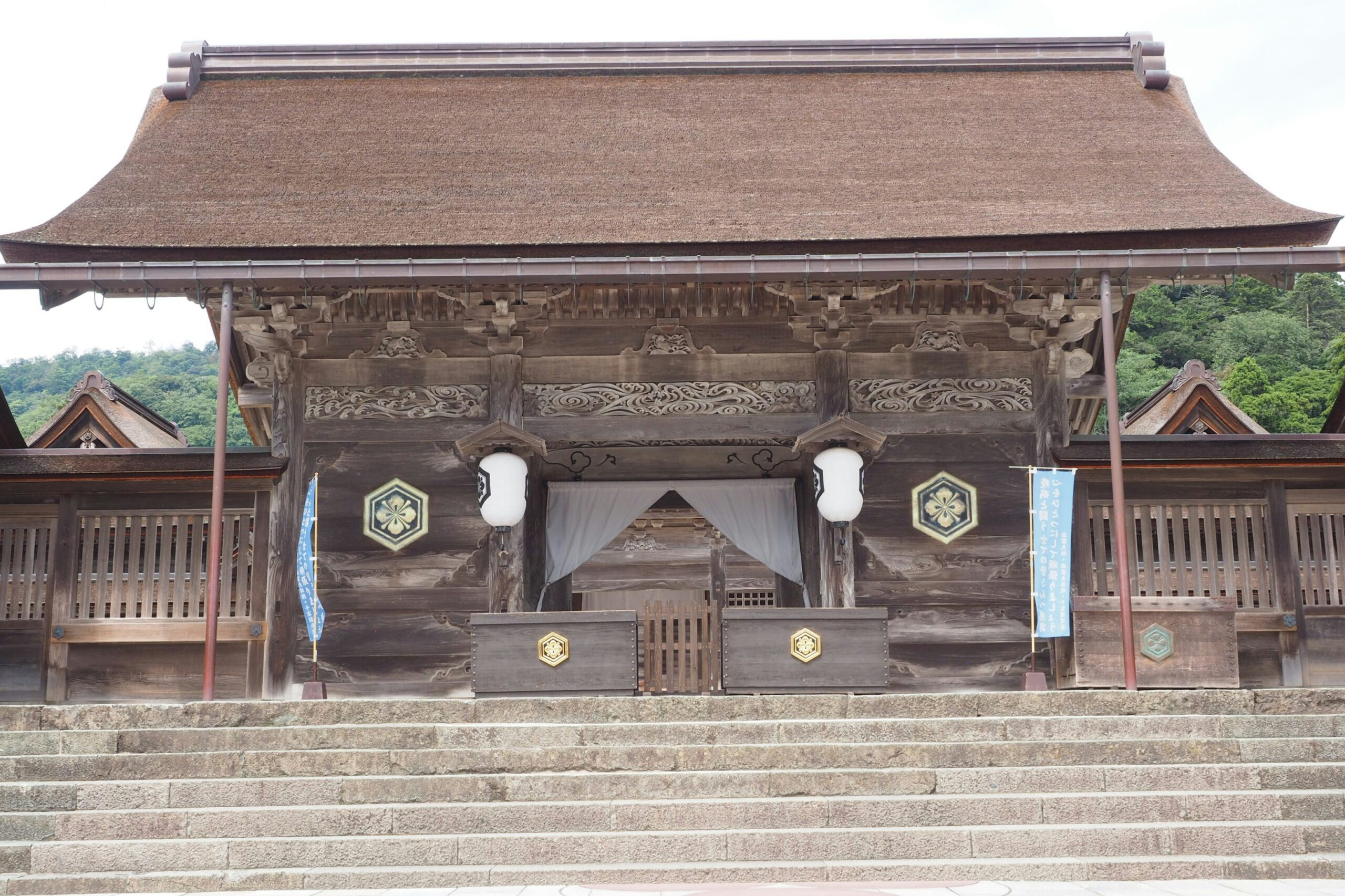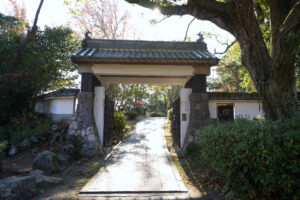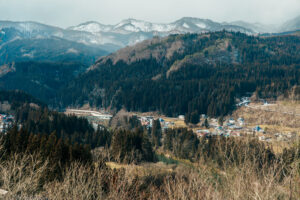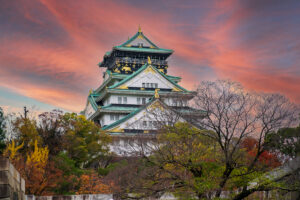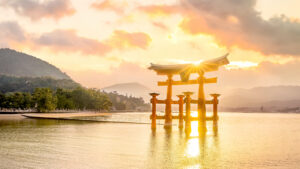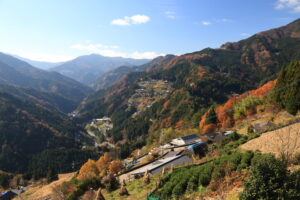Nestled in the heart of Shimane Prefecture, Izumo stands as a testament to Japan’s deep spiritual roots and rich cultural history. Revered as the land of the gods, this enchanting region draws visitors from across the globe, seeking to uncover its mysteries and partake in its ancient traditions. With a history that intertwines the divine with the earthy, Izumo offers a unique glimpse into the soul of Japan. From its majestic shrine to its traditional soba, every aspect of Izumo tells a story of faith, tradition, and natural beauty. Join us as we journey through Izumo, the spiritual heartland of Japan, exploring its sacred sites, legendary tales, and the enduring customs that define this mystical sanctuary.
Unveiling Izumo: Japan’s Mystical Sanctuary
Izumo, often referred to as the land where gods reside, serves as a spiritual beacon in Japan’s cultural landscape. This region, shrouded in myth and history, invites the curious and the faithful alike to explore its sacred grounds. The air in Izumo is thick with the aura of mystique, owing largely to its ancient shrines and rituals that date back thousands of years. As one steps into Izumo, they step into a world where the veil between the divine and the mortal seems exceptionally thin. The region’s natural beauty complements its spiritual significance, with landscapes that feel as if they’ve been carved by the gods themselves. Izumo’s identity is inextricably linked to its role as a spiritual sanctuary, offering solace and inspiration to all who visit.
Journey to the Past: Izumo’s Ancient Roots
The history of Izumo is as vast and deep as the ocean surrounding Japan. Archaeological findings suggest that the area has been inhabited since prehistoric times, playing a pivotal role in the formation of Japanese civilization and Shinto, the indigenous faith of Japan. Izumo’s ancient roots are most famously encapsulated in the Izumo Fudoki, a 8th-century document detailing the region’s geography, culture, and myths. This document, along with the Kojiki and Nihon Shoki, records the legendary origins of Izumo, painting a picture of a land favored by the gods. It was here that Okuninushi, a central deity in Shinto mythology, is said to have governed, further cementing Izumo’s position as a linchpin of spiritual history in Japan.
The Grand Shrine of Izumo: Where Gods Convene
Izumo Taisha, or Izumo Grand Shrine, stands as a majestic testament to the region’s divine heritage. As one of Japan’s oldest and most significant Shinto shrines, it is believed to host the annual gathering of the Shinto gods from across Japan in October (the tenth month of the lunar calendar). This event, known as Kamiarizuki (the month of gods), contrasts with the rest of Japan, which observes this period as Kannazuki (the month without gods). The shrine’s architectural grandeur, notably its towering shimenawa (sacred straw rope), signifies its importance as a spiritual power spot. Pilgrims and tourists are drawn to this sacred site, not just for its religious significance, but also to marvel at its ancient design and serene atmosphere.
Spiritual Practices: Izumo’s Living Traditions
In Izumo, ancient rituals and spiritual practices continue to thrive, woven into the fabric of daily life. The region observes a myriad of Shinto ceremonies and festivals that have been passed down through generations. These practices, ranging from the solemn to the celebratory, offer a window into the soul of traditional Japan. Among these, the Sada Shin Noh, a sacred dance performed at Sada Shrine, stands out as a UNESCO Intangible Cultural Heritage, showcasing the deep connection between the people of Izumo and their gods. Through these living traditions, the spirit of Izumo is kept alive, continually renewing the bond between the land, its people, and the divine.
Izumo Soba: A Taste of the Divine
Culinary traditions in Izumo are deeply imbued with spiritual significance, and none more so than Izumo soba. This buckwheat noodle dish, known for its deep flavor and delicate texture, is more than just a local specialty—it is a culinary embodiment of Izumo’s heritage. The practice of serving Izumo soba in a tiered box, known as warigo soba, is a unique tradition that reflects the region’s philosophy of hospitality and community. Enjoying a bowl of Izumo soba is not merely a gastronomic experience; it is a rite of passage for visitors, offering a taste of the divine in each bite.
The Enigmatic Izumo Taisha: A Closer Look
The allure of Izumo Taisha lies not only in its spiritual significance but also in its architectural and historical mysteries. The shrine’s main hall (honden) has been rebuilt every few decades, a tradition known as Sengu, symbolizing renewal and impermanence. Interestingly, historical records and archaeological evidence suggest that the original structure was even more grandiose, with speculation about its height and design captivating scholars and laypeople alike. The vast shrine complex invites exploration, from its sacred halls to the tranquil ponds and ancient cedar trees that dot the landscape. Each element of Izumo Taisha tells a part of Izumo’s enigmatic story, inviting visitors to delve deeper into its mysteries.
Sacred Dances and Rituals of Izumo
Izumo’s cultural tapestry is rich with sacred dances and rituals that have been preserved over centuries. These performances, ranging from the solemn to the celebratory, are integral to Izumo’s spiritual calendar. The Kagura dance, performed to entertain the gods and seek their blessings, is a mesmerizing spectacle of movement and music. Another highlight is the ritual of Yudate, where priests purify the shrine and its worshippers with boiling water, symbolizing cleansing and renewal. These sacred dances and rituals bridge the gap between the past and the present, allowing participants and observers alike to touch the eternal.
Myths and Legends: The Stories That Shape Izumo
The mythology surrounding Izumo is as captivating as the landscape itself. Tales of gods, creation, and heroic deeds are intricately woven into the fabric of Izumo’s identity. The story of Okuninushi, the deity of good fortune and the land’s ruler, and his quest to build a nation, resonates deeply in the region’s folklore. These legends are not mere tales of the past; they are living narratives that continue to influence the culture, traditions, and beliefs of Izumo’s people. Through festivals, rituals, and daily practices, the mythical heritage of Izumo is celebrated and preserved, linking the community to its divine origins.
Nature’s Blessings: Exploring Izumo’s Landscapes
Izumo’s natural beauty is as revered as its spiritual sites, offering serene vistas that seem to echo the gods’ presence. From the rugged cliffs of the San’in Kaigan coast to the tranquil waters of Lake Shinji, nature’s blessings are abundant. The region’s landscapes are a haven for those seeking reflection or inspiration, embodying the harmony between humanity and the natural world. Seasonal changes paint the scenery in vibrant hues, with cherry blossoms in spring and fiery maples in autumn, each adding a layer of enchantment to Izumo’s already mystical aura.
The Artisans of Izumo: Keepers of Tradition
The craftsmanship of Izumo’s artisans is a testament to the region’s rich cultural heritage. From intricate shrine carpentry to the weaving of delicate textiles, these craftspeople are the custodians of centuries-old techniques. Their work, deeply rooted in the spiritual and mythological traditions of Izumo, continues to inspire awe and respect. Through their dedication, the artisans of Izumo ensure that the physical expressions of the region’s beliefs and values are preserved for future generations, bridging the gap between the ancient and the modern.
Izumo’s Festivals: A Calendar of Spiritual Events
Izumo’s calendar is punctuated by festivals that celebrate its spiritual heritage. These events, each with its own history and significance, draw participants and spectators into the communal spirit of reverence and joy. The most notable of these is the Kamiari Festival in October, which marks the annual congregation of deities at Izumo Taisha. This period is characterized by a series of rituals, dances, and offerings, underscoring the deep connection between the divine and the people of Izumo. Through these festivals, the spiritual rhythm of the region is maintained, reinforcing the sacred bonds that define Izumo.
Beyond the Sacred: Modern Life in Izumo
While Izumo’s spiritual and cultural traditions are the bedrock of its identity, the region is also navigating the pathways of modernity. The juxtaposition of ancient shrines against the backdrop of contemporary life creates a unique tapestry that defines today’s Izumo. Here, innovation coexists with tradition, as the community finds new ways to honor its heritage while embracing the future. From local initiatives that aim to revitalize the region to the infusion of modern technology in preserving ancient crafts, Izumo is a living example of the harmonious blend of the old and the new.
Izumo, with its mystical aura and profound cultural depth, offers a journey into the spiritual heart of Japan. Its ancient shrines, sacred rituals, and legendary tales speak to the soul, inviting introspection and connection. But beyond the spiritual, Izumo’s natural beauty, artisanal crafts, and vibrant festivals showcase the richness of Japanese heritage. As a bridge between the divine and the earthly, the ancient and the contemporary, Izumo exemplifies the enduring spirit of a nation deeply rooted in tradition yet ever-evolving. For those seeking to immerse themselves in the essence of Japanese culture and spirituality, Izumo beckons as a beacon of inspiration and wonder.
